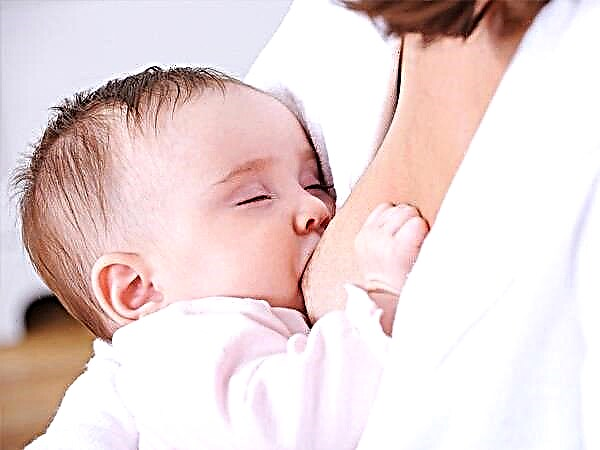Babies cry for different reasons: they want to eat, they need to change their diapers, or they are cold. However, the child may cry even if he is full and changes clothes, because he has infant colic.
Colic in newborns is quite common; according to statistics, about 70% of children suffer from them. As pediatricians say, colic is a small problem for a child, but a huge problem for parents. Doctors know very well that colic will surely go away, just a little time and patience are needed. But how to explain this to young parents who cannot calm down a crying baby for hours, begin to think that something is wrong with their child and are constantly looking for an effective solution to this problem.

What is colic?
In fact, there is no definite answer to this question.
Most pediatricians agree that colic is an acute pain that comes on suddenly and is most often caused by excessive gas formation in various parts of the intestine.
In fact, colic is not a disease, but in most cases a natural physiological phenomenon that accompanies the maturation of the intestines of a newborn. However, it is important to understand that the only condition under which colic has a right to exist is the normal physical condition of the child. That is, we are talking about colic when a perfectly healthy child cries - without fever, signs of dehydration or hunger.
Causes of colic in newborns
The true causes of colic are still unknown to the medical community. Pediatricians identify a number of factors that provoke their appearance:
- Immature digestive system. After the baby is born, the intestines begin to work, its microflora is formed, the enzymes necessary for the digestion of food begin to be produced. While they are still not enough (this is why temporary lactase deficiency may occur), intestinal motility is reduced, as a result, gas accumulates in it, and their passage is difficult, the intestinal loops are overstretched, and the newborn has severe paroxysmal pain.
- Air entering the stomach during feeding. It is important to ensure that during feeding, the baby correctly captures the breast - the nipple along with the halo. Then the child with food will not swallow air, which begins to "walk" through the digestive system, disrupting the normal processes of assimilation of food.
- Wrong choice of bottle for bottle feeding. It is better to choose bottles with anti-colic nipples, otherwise excess air will also begin to enter the baby's stomach.
- Unsuitable adapted infant formula.
- Overeating of the baby or small intervals between feedings.
- Nutrition for a nursing mother. Meals should be varied, do not limit yourself. The main thing is for the first time to refuse food that increases gas formation, and to use gentle methods of heat treatment. Highly allergenic foods, such as red berries and fruits, citrus fruits, should be tasted in small portions, observing the baby's reaction. Sometimes they recommend that the mother exclude dairy products, explaining the baby's poor health by a reaction to cow protein.

The main symptoms
What are the signs that you can understand that the baby is worried about colic?
- The child becomes restless, at about the same time, mainly in the evening;
- The baby knocks his legs and presses them to the tummy, which is swollen and firm to the touch;
- Difficulty with a chair is possible;
- The baby is difficult to distract, even the presence of the mother nearby does not help, he continues to cry;
- After the gas passes, the child becomes easier, he ceases to be capricious and sleeps better.
How long does colic last and when does it go away?
Among pediatricians, there is a so-called “rule of three”. Usually, intestinal colic begins to bother the newborn at 3 weeks of life, and ends closer to 3 months. Colic occurs at least 3 days a week, and the cry lasts about 3 hours a day.
It is impossible to predict the duration of colic in a baby, as it is a very individual process. There are kids who are not affected by this problem at all. As soon as the body adapts to the new environment, food, colic will cease to bother the child. This means that the digestive system has become more perfect, and the baby has moved on to a new stage of development.
How to help a newborn with colic?
Obviously, it is simply impossible to watch the baby hurt. Therefore, there are several ways to help reduce pain.
- Tummy massage. Movements should be slow, soft, smooth. The main ones are circular movements with the inner side of the palm along the tummy, clockwise. Also do stroking movements from top to bottom, moving from left to right and in the opposite direction. The duration of the massage can be about 10 minutes.
- Establish proper attachment of the baby to the breast while breastfeeding, purchase a bottle with an anti-colic nipple when artificially feeding.
- After feeding, carry the baby in a "column" or at an angle of 45 ° until the air leaves the stomach, usually 10-15 minutes is enough for this.
- You can apply a warm diaper or heating pad to the abdomen.
- The Windi gas tube will help to relieve the baby of excess gases. The procedure is as simple and effective as possible, since the tube has an insertion stop and a rounded tip. Massage the tummy (the scheme is described above and is on the back of the Windi package), grease the tip of the tube with oil, petroleum jelly or baby cream, gently insert the tube. Gaziks come out immediately, you will hear a characteristic sound, the baby calms down and sleeps better. Windi tubes are designed in Sweden and are designed for single use.

If colic does not go away for too long, then you can start a course of treatment with drugs:
⦁ Based on simethicone
⦁ Based on pro- and prebiotics
It is important to remember that each drug is selected individually with your pediatrician. It so happens that they cause allergic reactions. Sometimes babies refuse to drink them, as the taste is different from the usual mother's milk or mixture.
In any case, colic is a natural process that takes place over time as the baby grows up. But in order to quickly help the baby, add a colic remedy to the children's first aid kit.
Be healthy!



